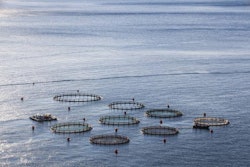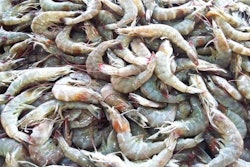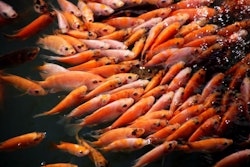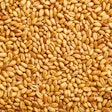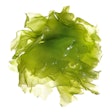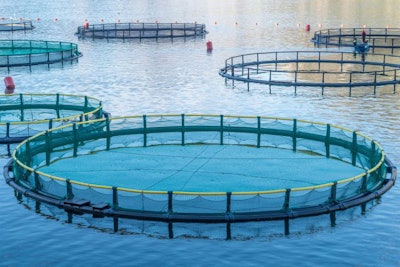
Cooke Aquaculture is proposing a new Atlantic salmon fish farm off the Pacific coast of Washington, but local groups are opposed to the plan, which has been put on hold since the inadvertent release of farmed salmon into local waters.
The plan includes 14 floating circular net pens 1.5 miles offshore. The company would move its operation from Port Angeles Harbor to the new farm, increasing production by 20 percent, according to a report.
Company apologizes for fish release
On August 20, one of Cooke’s farms near Cypress Island in the San Juan Islands experienced major structural damage, leading to the escape of fish from the farm, which was stocked with 305,000 Atlantic salmon, according to the company. The Washington Department of Fish & Wildlife says 100,000 of the 160,000 escaped salmon are still unaccounted for.
“We are deeply sorry about this event and the loss of Atlantic salmon from the Cypress farm,” Cooke said in a statement on September 6. “Over the past two weeks, we have been focused on properly and safely removing the fish and equipment from the farm and working with tribal partners, experts and agencies to meet our obligations.
“Cooke Aquaculture Pacific has been working and will continue to work with the relevant authorities to make sure we employ the best knowledge, technology and expertise available – including that of our global experts and other industry-leading resources – on our Washington farms to make sure the infrastructure is adequately suited to the local environment and safe containment of the fish,” the statement continued.
Local groups opposed to plan, lawsuit filed
The Lummi Nation declared a state of emergency after the incident, according to a report.
“The tribe has not received confirmation that the Atlantic salmon spill has been contained, so we have to assume that the invasive fish continues to spill into these waters, putting the spawning grounds for native salmon species at risk,” Timothy Ballew II, chairman of the Lummi Indian Business Council, said in a statement.
On November 13, the Wild Fish Conservancy (WFC) announced it is filing a lawsuit against Cooke for violation of the Clean Water Act in relation to the inadvertent release of fish. WFC says the release led to the discharge of dead fish carcasses, pollutants and other debris into the surrounding waters. It says the farmed fish could potentially outcompete the endangered native Chinook salmon and steelhead for food and spawning grounds, and spread disease and parasite to the native fish.
“The August release in Deepwater Bay is not an isolated incident,” said Kurt Beardslee, WFC executive director, in a statement. “Rather, the escape represents yet another act of negligence in a long line of transgressions on the part of the Atlantic salmon net pen industry in Puget Sound, including three major escape events in the 1990s and a deadly disease outbreak in 2012. In the hopes of preventing future harm to Puget Sound and the critical marine habitats on which Washingtonians and wildlife rely, we’re taking legal action today to put Cooke Aquaculture’s actions leading up to and during the spill under legal and public scrutiny for the benefit of our Sound and our salmon.”
The Puget Soundkeeper Alliance says the proposed new operation would be located on a “migratory path for what some would say are most of the outgoing and incoming native Pacific salmon.”
A hearing on the proposed plan was scheduled for September 7, but Cooke asked for it to be postponed as it dealt with the aftermath of the salmon release.
However, the public still sought a hearing, and one was organized by the Puget Soundkeeper Alliance and held on November 8. The event was attended by environmentalists, local tribe leaders and lawmakers. Cooke representatives were invited, but declined to attend.
“Cooke Aquaculture welcomes respectful dialogue about the benefits of salmon farming in Washington state. We look forward to participating in the Clallam County hearing on the proposed relocation of the Port Angeles fish farm when it is rescheduled. Wednesday’s event was not a hearing, but a protest event, which did not include our company,” a Cooke spokesperson said in a statement.


